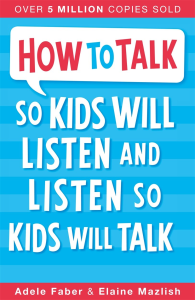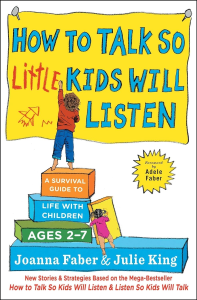Effective Parenting Tips: The Art of Positive Parenting
Effective parenting tips include setting limits, spending quality time with your kids, being a good role model, praising your kids, and teaching them social skills. It’s important to make decisions for your child with careful consideration and treat them with respect.
Positive parenting styles involve supporting exploration and involvement in decision-making, paying attention to a child’s needs, using effective communication, attending to a child’s emotional expression and control, rewarding and encouraging positive behaviors, and providing clear rules and expectations. The Four Cs of parenting, which are choices, consequences, consistency, and compassion, are crucial for effective parenting.
By following these tips and principles, you can cultivate a healthy and positive parent-child relationship.
The Importance Of Positive Parenting
Discover the importance of positive parenting and effective parenting tips to help your child grow and develop. Set limits, spend quality time, be a good role model, praise your kids, trust yourself, and teach them social skills. Explore choices, consequences, consistency, and compassion as essential elements of successful parenting.
Parenting As A Process Of Preparing Children For Independence
Parenting is a crucial process that involves preparing your child for independence. As your child grows and develops, it is essential to provide them with the necessary skills and guidance to navigate the world. Effective parenting means helping your child develop the confidence, resilience, and self-reliance they need to become successful individuals. Here are some ways you can support your child’s journey towards independence:
Ways To Help Your Child Grow And Develop
Ensuring your child’s growth and development is a top priority for every parent. By embracing positive parenting approaches, you can create an environment that nurtures their physical, emotional, and cognitive well-being. Here are some strategies that can help:
- Set limits: It is important to establish clear boundaries and guidelines for your child to follow. This teaches them self-discipline and helps them understand right from wrong.
- Spend quality time with your kids: Make it a priority to engage in meaningful activities and conversations with your child. This strengthens the parent-child bond and fosters a sense of security and belonging.
- Be a good role model: Children often learn by observing their parents. By demonstrating positive behaviors and values, you set a standard for your child to follow.
- Praise your kids: Recognize and acknowledge your child’s efforts and achievements. Positive reinforcement boosts their self-esteem and motivates them to continue making progress.
- Trust yourself: Believe in your abilities as a parent and trust your instincts. No one knows your child better than you do, so have confidence in your parenting decisions.
- Teach your kids social skills: Encourage your child to develop healthy social relationships by teaching them empathy, kindness, and effective communication skills.
Positive parenting involves guiding your child toward independence while providing them with a nurturing and supportive environment. By using these strategies, you can empower your child to grow and develop into confident individuals who are ready to face the world.
Set Limits
Learn about effective parenting tips by setting limits for your child. Spend quality time together, be a good role model, praise them, trust your instincts, teach social skills, and more. Positive parenting styles include supporting exploration, effective communication, clear rules, and compassion.
The Four Cs of parenting—choices, consequences, consistency, and compassion—are crucial.
Establishing Boundaries And Guidelines For Behavior
One of the key aspects of effective parenting is setting limits and establishing boundaries for your child. By clearly defining expectations and guidelines for behavior, you are creating a structure that helps your child understand what is acceptable and what is not. This provides them with a sense of security and helps them develop self-discipline.
When setting boundaries, it is important to consider your child’s age, developmental stage, and individual needs. Be specific about what behaviors are acceptable and what consequences they may face if they cross those boundaries.
Teaching Children Self-discipline And Responsibility
Teaching your child self-discipline and responsibility is an essential part of effective parenting. By doing so, you are empowering them to make wise decisions, develop self-control, and become accountable for their actions.
One way to teach self-discipline is by allowing your child to experience natural consequences. For example, if they forget to do their homework, they may receive a lower grade. This teaches them the importance of being responsible and following through on their commitments.
Another effective strategy is to give your child age-appropriate responsibilities. By assigning them tasks around the house, such as tidying up their room or feeding the family pet, you are teaching them valuable life skills and instilling a sense of contribution.
Remember, teaching self-discipline and responsibility is an ongoing process. Be patient and consistent in your approach, and provide guidance and support as they navigate their way towards becoming responsible adults.
Spend Quality Time With Your Kids
Spend quality time with your kids by setting limits, being a good role model, praising them, and teaching them social skills. Effective parenting tips include trusting yourself, supporting exploration and involvement in decision-making, attending to your child’s needs, and using clear rules and expectations.
Remember the Four Cs of parenting: Choices, Consequences, Consistency, and Compassion.
Building Stronger Relationships With Your Children
Spending quality time with your kids is crucial for building stronger relationships. It not only allows you to connect with them on a deeper level but also fosters trust and understanding. By making an effort to spend quality time with your children, you can create lasting memories and develop bonds that will carry them through their lives.
Engaging In Activities That Promote Bonding And Emotional Connection
When it comes to spending quality time with your kids, it’s important to engage in activities that promote bonding and emotional connection. This can include a wide range of activities such as playing board games together, going on nature walks, cooking or baking together, or even having regular family movie nights. These activities create opportunities for meaningful conversations, laughter, and shared experiences, allowing you to connect with your children on a deeper level.
Ensuring That You Prioritize Quality Time
As parents, it’s easy to get caught up in the busyness of life, but it’s essential to ensure that you prioritize quality time with your kids. This means putting away your phone or other distractions and truly being present when you’re spending time together. By giving your undivided attention, you’re showing your children that they are important and valued, which goes a long way in building a strong parent-child relationship.
Creating A Routine For Quality Time
To ensure that you consistently spend quality time with your kids, it can be helpful to create a routine. Whether it’s setting aside a specific time each day for a shared activity or designating a family day each week, having a routine helps ensure that quality time becomes a regular part of your family’s schedule. By making it a priority and incorporating it into your routine, you’re maximizing the chances of bonding and creating meaningful connections with your children.
Emphasizing The Importance Of Open Communication
During your quality time together, it’s important to encourage open communication with your kids. Create a safe and non-judgmental space where they feel comfortable sharing their thoughts, feelings, and concerns. By actively listening and engaging in meaningful conversations, you’re not only building trust but also teaching your children valuable communication skills that will benefit them in all aspects of life.
Be A Good Role Model
Learn how to be a good role model for your child with these effective parenting tips. Set limits, spend quality time, praise your kids, and teach them social skills. Trust yourself and remember to treat your child with respect.
Being a good role model is crucial to effective parenting. Children learn from the behavior and actions of their parents, so it is important to model appropriate behavior and values. By demonstrating the values and behaviors you want your children to emulate, you are setting a positive example for them to follow.
Modeling Appropriate Behavior And Values
Children are highly observant and tend to mimic the actions of those around them. As a parent, it is essential to be mindful of your own behavior and ensure that it aligns with the values and behaviors you want your children to adopt. Whether it is showing kindness and respect to others, practicing good manners, or handling conflicts peacefully, your actions speak louder than words.
In addition, it is important to demonstrate positive values such as honesty, empathy, and responsibility. By consistently modeling these behaviors, you create an environment where your children learn and internalize these values.
Teaching Children Important Life Skills Through Your Actions
Actions speak louder than words, and this holds true when it comes to teaching children important life skills. Instead of just telling your children what to do, show them through your actions. Whether it is being organized, managing finances responsibly, or being resilient in the face of challenges, your children can learn these skills by observing how you handle such situations.
For example, if you want your child to develop good study habits, create a designated study area for yourself and demonstrate consistency in your own work habits. Your child will understand the importance of focus and discipline by seeing you prioritize your own work and studies.
By being a good role model, you are not only teaching your children important life skills but also instilling in them the confidence and motivation to develop these skills themselves.
Summary
Being a good role model is a powerful way to shape your child’s behavior and values. By modeling appropriate behavior and values and teaching important life skills through your actions, you are laying a strong foundation for your child’s personal growth and development. Remember, your actions speak louder than words, so ensure that you are consistently demonstrating the values and behaviors you want your children to adopt.
Praise Your Kids
Discover effective parenting tips to praise your kids and promote positive behavior. Set limits, spend quality time, be a good role model, and teach social skills while trusting yourself. Support their exploration, attend to their needs, communicate effectively, and provide clear rules and expectations.
Remember the Four Cs of parenting—choices, consequences, consistency, and compassion—for healthy child development.
Encouraging And Reinforcing Positive Behavior
Praise for your kids is an essential aspect of effective parenting. By encouraging and reinforcing positive behavior, you not only motivate your children but also teach them valuable life skills. When your child does something right, whether it’s finishing a task or showing kindness to others, it’s important to acknowledge and appreciate their efforts. By doing so, you create a positive atmosphere at home and instill a sense of accomplishment in your children.
Praising your kids not only boosts their self-esteem but also encourages them to continue displaying positive behavior in the future. It lets them know that their efforts are recognized and valued. When children receive praise for their actions, they feel encouraged to take more initiative and strive for success. They learn that their hard work and dedication can lead to positive outcomes, which ultimately boosts their confidence in their abilities.
Boosting Self-esteem And Confidence In Children
Building self-esteem and confidence in children is crucial for their overall development. By consistently praising your kids, you contribute to their emotional well-being and help them believe in themselves. When children receive appreciation and recognition for their achievements, big or small, they develop a positive self-image and a belief in their capabilities.
Positive reinforcement through praise helps children see themselves in a positive light and fosters healthy self-esteem. It instills in them the confidence to take on challenges and approach new experiences with courage. By emphasizing their strengths and applauding their efforts, you provide the building blocks for their future success and resilience.
Remember, effective parenting involves consistent and genuine praise. Tailor your praise to specific behaviors or actions instead of offering generic compliments. Acknowledge the effort, creativity, or problem-solving skills that your child demonstrated. This shows that you are attentive to their achievements and helps them recognize their own unique strengths. Additionally, be mindful of the timing of your praise. Offer it immediately or soon after the positive behavior is exhibited to reinforce the connection between the behavior and the praise.
Trust Yourself
When it comes to effective parenting tips, one important aspect is to trust yourself. Set limits, spend quality time, be a good role model, praise your kids, and teach them social skills. Trusting your instincts will guide you in making the right decisions for your child’s growth and development.
Trust Yourself
As a parent, it’s natural to question your decisions and abilities. However, developing confidence in your parenting abilities is crucial in raising a happy and well-adjusted child.
Developing Confidence In Your Parenting Abilities
Parenting is a journey filled with uncertainties and challenges. It’s normal to doubt yourself at times, but learning to trust your instincts and judgment is essential. Here are some tips to help you gain confidence in your parenting abilities:
- Focus on your strengths: Each parent brings unique qualities to the table. Identify your strengths as a parent and embrace them. Whether it’s your ability to empathize, your sense of humor, or your problem-solving skills, recognize and appreciate the positive traits you possess.
- Reflect on past successes: Take a moment to reflect on the times when you made decisions that positively impacted your child. Remind yourself of these successes and build on them. Remember, you have the wisdom and experience to make informed choices.
- Seek support: Surround yourself with a supportive network of family and friends who can offer guidance and encouragement. Join parenting groups or online communities where you can connect with other parents facing similar challenges. Sharing experiences and learning from others can increase your confidence.
- Educate yourself: Stay informed about child development, parenting techniques, and relevant research. Read books, attend workshops, or consult professionals. The more knowledge you gain, the better equipped you’ll be to make informed decisions.
Making Decisions That Are In The Best Interest Of Your Child
As a parent, it’s your responsibility to make decisions that prioritize your child’s well-being. Here are some tips to help you make sound choices:
- Listen to your instincts: Your parental instincts are powerful. Trust your gut feelings when it comes to important decisions regarding your child’s safety, education, and overall development.
- Consider your child’s unique needs: Each child is unique, with different strengths, interests, and challenges. When making decisions, take into account your child’s individuality. Tailor your approach to meet their specific needs.
- Get informed: Gather information and do your research before making a decision. Consult experts, talk to other parents, and weigh the pros and cons. The more informed you are, the more confident you’ll feel about the choices you make.
- Stay consistent: Consistency is crucial in parenting. Stick to your decisions once you’ve made them, but also be open to adjustments when necessary. Your child will benefit from the stability and predictability.
- Trust yourself: Remember, you know your child best. Trust your instincts and believe in the love and dedication you have for your child. Have confidence that you are making decisions that are in their best interest.
By trusting yourself and making decisions that prioritize your child’s well-being, you can navigate the challenges of parenthood with confidence and ensure a positive and nurturing environment for your child’s growth.
Teach Your Kids Social Skills
Teaching your kids social skills is an essential aspect of effective parenting. By helping them develop effective communication and interpersonal skills, encouraging empathy, respect, and cooperation, you can set a solid foundation for their future relationships and interactions. Here are some actionable tips to incorporate into your parenting style:
Helping Children Develop Effective Communication And Interpersonal Skills
Effective communication is a crucial skill that children need to learn for successful interactions with others. To help your child develop these skills, consider the following strategies:
- Encourage active listening: Teach your child the importance of listening attentively to others and understanding their perspectives. This will help them communicate effectively and build strong relationships.
- Practice expressive communication: Encourage your child to express themselves clearly and confidently. Help them articulate their thoughts, feelings, and opinions in a respectful manner.
- Promote healthy dialogue: Foster an open environment where your child feels comfortable expressing their thoughts and ideas. Encourage discussions and provide constructive feedback to enhance their communication skills.
Encouraging Empathy, Respect, And Cooperation
Empathy, respect, and cooperation are fundamental values that facilitate healthy relationships. Here’s how you can encourage these qualities in your child:
- Model empathy and respect: Be a positive role model by demonstrating empathy and respect in your own interactions. Show compassion towards others and treat your child and others with kindness and understanding.
- Encourage perspective-taking: Teach your child to consider other people’s feelings and perspectives. This helps them develop empathy and understand the importance of respecting diverse opinions.
- Promote teamwork and cooperation: Engage your child in activities that require collaboration and teamwork. This will teach them the value of cooperation and working towards shared goals.
By incorporating these strategies into your parenting approach, you can actively contribute to your child’s social development and help them navigate the intricacies of interpersonal relationships. Remember, teaching social skills is an ongoing process that requires patience, consistency, and positive reinforcement.

Credit: desidollcompany.com
Supporting Exploration And Involvement In Decision-Making
In order to support your child’s growth and development, it is essential to encourage their exploration and involvement in decision-making. By allowing children to make choices and learn from consequences, and empowering them to become independent decision-makers, you can nurture their sense of autonomy and responsibility. Here are some effective parenting tips to help you in this process:
Allowing Children To Make Choices And Learn From Consequences
One way to support your child’s exploration and involvement in decision-making is by allowing them to make choices and learn from the consequences. Letting your child have a say in everyday decisions, such as what clothes to wear or what activity to engage in, not only promotes their independence but also gives them valuable opportunities to learn and grow.
For example, instead of choosing your child’s outfit for the day, give them a selection of appropriate clothing options and let them choose. If they choose to wear mismatched socks and realize that it doesn’t look quite right, they will learn from that experience and make a different choice next time.
Remember to provide guidance and boundaries when needed. If a choice has potentially harmful consequences, it is important to step in and guide your child towards a safer alternative.
Empowering Children To Become Independent Decision-makers
Empowering your child to become an independent decision-maker is crucial for their personal growth and development. It fosters their ability to think critically, problem-solve, and take responsibility for their actions. Here’s how you can achieve this:
- Encourage open dialogue: Create an environment where your child feels comfortable expressing their thoughts and opinions. Listen actively and engage in meaningful conversations that encourage them to think independently.
- Ask open-ended questions: Rather than providing solutions, ask your child open-ended questions that challenge their thinking and encourage them to explore different perspectives. This helps them develop their decision-making skills.
- Support their choices: Whenever possible, support your child’s decisions and show confidence in their abilities. This helps build their self-esteem and encourages them to take ownership of their choices.
- Encourage problem-solving: When your child encounters a problem, guide them through the process of finding solutions instead of providing immediate answers. This helps them develop critical-thinking skills and a sense of personal agency.
Remember, empowering your child to become an independent decision-maker does not mean abandoning your role as a parent. It means guiding them, providing them with the skills and knowledge they need, and allowing them to take age-appropriate risks.
By supporting exploration and involvement in decision-making, you are giving your child the tools they need to navigate the world with confidence and independence.
Paying Attention And Responding To A Child’s Needs
When it comes to effective parenting, paying attention and responding to a child’s needs is crucial. Recognizing and meeting the physical, emotional, and psychological needs of children is an essential aspect of fostering their overall well-being and development.
Recognizing And Meeting The Physical, Emotional, And Psychological Needs Of Children
Children have diverse needs that encompass not just the physical aspects, but also their emotional and psychological well-being. It is important for parents to be attuned to these needs and respond accordingly. Here are some ways to recognize and meet these needs:
- Physical Needs:
Ensure that your child has a balanced diet and receives proper nutrition. Make sure they get enough sleep and rest to support their growth and development. Provide a safe and clean environment for them to thrive in, ensuring their physical safety is a priority.
- Emotional Needs:
Pay attention to your child’s emotions and validate their feelings. Create a nurturing and supportive environment that allows them to express themselves freely. Help them develop emotional intelligence by teaching them how to identify and manage their emotions.
- Psychological Needs:
Encourage your child’s curiosity and provide them with opportunities for intellectual stimulation. Support their cognitive development through activities that challenge and engage their minds. Foster a sense of autonomy and independence by allowing them to make age-appropriate choices and decisions.
Building Trust And A Sense Of Security In The Parent-child Relationship
The parent-child relationship serves as the foundation for a child’s emotional well-being and overall development. Building trust and establishing a sense of security is vital for nurturing a strong and healthy bond. Here are some strategies to strengthen the parent-child relationship:
- Be present and available: Engage in quality time with your child, actively participating in their lives and showing genuine interest.
- Show empathy and understanding: Listen attentively to your child’s concerns and validate their emotions. Demonstrate unconditional love and support.
- Be a consistent and reliable presence: Children thrive in predictable environments. Establish routines and stick to them, as this creates a sense of stability and security.
- Communicate effectively: Encourage open and honest communication, fostering a safe space for your child to express themselves without fear of judgment or criticism.
- Set reasonable expectations and boundaries: Establish clear rules and boundaries, ensuring consistency in discipline and guidance. This helps children feel secure and understand the expectations placed upon them.
By paying attention to and responding to your child’s needs, you create an environment that promotes their overall well-being, growth, and development. Nurturing a strong parent-child bond built on trust and security lays the foundation for positive parenting and sets the stage for your child’s future success. Remember, every child is unique, and understanding their individual needs is key to effective parenting.
Using Effective Communication
In order to effectively parent your child, it is important to utilize effective communication, set limits, spend quality time, and be a role model. Trusting yourself, teaching social skills, and praising your child are also essential in positive parenting.
Developing Open And Honest Communication With Your Child
Effective communication is the key to fostering a strong and healthy parent-child relationship. When you create an environment of open and honest communication, you provide your child with a safe space to express their thoughts, feelings, and concerns. Here are some essential tips to help you develop open and honest communication with your child:
- Be an active listener: When your child is talking to you, give them your undivided attention. Show them that you are genuinely interested in what they have to say by maintaining eye contact, nodding your head, and using verbal cues such as “yes,” “I see,” or “go on.”
- Show empathy: Empathy is the ability to understand and share the feelings of another person. When your child opens up to you, try to put yourself in their shoes and validate their emotions. Let them know that you understand how they feel and that their feelings are important. This will create a sense of trust and make them more comfortable sharing with you in the future.
- Express your thoughts and feelings effectively: Communication is a two-way street. It’s important for you to express your thoughts and feelings as well. Be clear, concise, and honest in your communication. Use “I” statements to express how you feel without blaming or accusing your child.
Active Listening, Empathy, And Effective Expression Of Thoughts And Feelings
Active listening, empathy, and effective expression of thoughts and feelings are vital skills that contribute to effective communication between parents and children. These skills help in fostering mutual understanding, resolving conflicts, and building a strong emotional connection. Here’s how you can improve and practice these skills:
- Active listening: Practice active listening by giving your complete attention to your child when they are speaking. Avoid interrupting or jumping to conclusions. Instead, focus on understanding their perspective and validating their feelings.
- Empathy: Show empathy by putting yourself in your child’s shoes and trying to understand how they feel. Acknowledge their emotions and let them know that you are there to support and listen to them without judgment.
- Effective expression of thoughts and feelings: Teach your child healthy ways to express their thoughts and feelings. Encourage them to use “I” statements to express themselves and avoid aggressive or blaming language. By modeling effective expression yourself, you set an example for your child to follow.
By developing open and honest communication, actively listening to your child, showing empathy, and practicing effective expression of thoughts and feelings, you create a solid foundation for a strong and healthy parent-child relationship. These skills are not only crucial in addressing everyday concerns but also in addressing more significant issues that may arise during your child’s developmental journey.
Attending To A Child’s Emotional Expression And Control
Learn effective parenting tips for attending to your child’s emotional expression and control. Support their needs, communicate effectively, and reward positive behaviors. Set clear rules and expectations while making choices, providing consequences, maintaining consistency, and showing compassion. Explore positive parenting styles for healthy child development.
Helping Children Understand And Manage Their Emotions
Children often struggle with understanding and managing their emotions. As parents, it is crucial to provide them with the tools and guidance they need to navigate their feelings effectively. Here are some strategies you can use to help your child understand and manage their emotions:
1. Teach emotional vocabulary: Help your child learn to identify and name their emotions. By giving them words to express how they feel, you empower them to communicate their emotions effectively.
2. Normalize emotions: Let your child know that it is okay to feel a wide range of emotions and that all feelings are valid. Encourage open discussions about emotions, and let them know that you are there to support them through every emotional experience.
3. Active listening: When your child expresses their emotions, give them your full attention. Show empathy and validate their feelings, letting them know that you understand and care about what they are going through.
4. Problem-solving: Teach your child problem-solving skills to help them manage difficult emotions. Guide them through the process of finding solutions or alternative ways to deal with challenging situations.
5. Emotional regulation techniques: Teach your child various strategies to regulate their emotions, such as deep breathing exercises, engaging in physical activities, or practicing mindfulness techniques. Encourage them to use these techniques when they are feeling overwhelmed or upset.
By helping your child understand and manage their emotions, you are equipping them with important life skills that will benefit them throughout their lives.
Providing A Safe And Supportive Environment For Emotional Growth
Creating a safe and supportive environment for your child’s emotional growth is paramount to their overall well-being. Here are some steps you can take to ensure that your child feels safe and supported in expressing and managing their emotions:
1. Be a positive role model: Children learn by observing their parents’ behavior. Model healthy emotional expression by being mindful of how you handle your own emotions. Show them that it is okay to express emotions in a constructive and healthy manner.
2. Create a non-judgmental atmosphere: Make sure your child feels comfortable talking about their emotions without fear of judgment or criticism. Encourage open communication and assure them that you are there to listen and support them.
3. Recognize and validate their feelings: When your child expresses their emotions, acknowledge and validate their feelings. Let them know that it is normal to experience various emotions and that you understand and accept their feelings.
4. Set clear boundaries: Establish clear boundaries and expectations regarding acceptable behavior, while also allowing for emotional expression within those boundaries. This will help your child understand and respect the limits while still allowing them to express their emotions.
5. Encourage self-care: Teach your child the importance of self-care and help them develop healthy coping mechanisms. Encourage activities such as journaling, engaging in hobbies, or spending time outdoors, which can help them manage their emotions and reduce stress.
By providing a safe and supportive environment, you are fostering your child’s emotional growth and helping them develop the skills necessary to navigate their feelings effectively. Remember, emotional well-being is just as important as physical well-being in raising a healthy and happy child.
Rewarding And Encouraging Positive Behaviors
Rewarding and encouraging positive behaviors is an essential aspect of effective parenting. By setting clear rules and expectations, praising your kids, and being a good role model, you can help your child develop into an independent and well-rounded individual. Trust yourself and spend quality time with your kids to support their growth and development.
Using Positive Reinforcement To Motivate And Reinforce Desired Behaviors
Positive reinforcement is a powerful tool in shaping a child’s behavior. By using positive reinforcement, parents can motivate and reinforce desired behaviors in their children. Positive reinforcement involves rewarding and acknowledging positive behaviors, which increases the likelihood of those behaviors being repeated in the future.
- When your child exhibits a positive behavior, such as sharing or being kind to others, provide immediate praise and recognition. Use specific and genuine compliments to let your child know exactly what they did well.
- Offer small rewards, such as stickers or tokens, for consistently exhibiting the desired behavior. These rewards can be accumulated and exchanged for larger rewards or privileges.
- Remember to be consistent with your positive reinforcement. Be sure to praise and reward your child consistently each time they exhibit the desired behavior to reinforce its importance.
Celebrating Achievements And Milestones In Your Child’s Development
Celebrating achievements and milestones in your child’s development is an effective way to encourage positive behaviors and boost their self-esteem. By celebrating their accomplishments, you let your child know that you recognize and value their efforts and progress.
- When your child achieves a milestone, such as learning to ride a bike or tying their shoes, celebrate their accomplishment by planning a special activity or outing. This will create a positive association with their achievement and motivate them to continue achieving.
- Display their achievements prominently in your home. Whether it’s artwork, certificates, or medals, showcasing their accomplishments will not only make them feel proud but also serve as a reminder of their capabilities.
- Include the whole family in celebrating your child’s achievements. Encourage siblings, grandparents, and other family members to acknowledge and praise their accomplishments. This support system will further reinforce positive behavior.
Providing Clear Rules And Expectations
When it comes to raising well-behaved and responsible children, one crucial aspect of effective parenting is providing clear rules and expectations. Establishing clear guidelines for behavior helps children understand boundaries and develop self-discipline. It gives them a sense of security and structure while fostering their emotional and social development. Below, we explore the importance of establishing clear rules and expectations and how to implement them successfully.
Establishing Clear Guidelines And Expectations For Behavior
Children thrive in environments with clearly defined expectations. When parents set clear guidelines for behavior, they help their children understand what is and isn’t acceptable. These guidelines become a roadmap for how children should conduct themselves, both at home and in society. Here are some key strategies to establish clear guidelines and expectations:
- Define the rules: Create a list of specific rules that reflect your family’s values and priorities. Keep these rules concise and easy to understand for your child.
- Explain the rules: Take the time to explain each rule to your child. Discuss the reasons behind them and the potential consequences of not following them.
- Ensure understanding: Encourage your child to ask questions or seek clarifications about the rules. This way, they can fully comprehend and internalize them.
- Written reminders: Write down the rules and place them in a visible and accessible location, such as on a refrigerator or a family bulletin board. This serves as a constant reminder for everyone in the household.
Consistency And Fairness In Enforcing Rules
Enforcing rules consistently and fairly is paramount to effective parenting. When rules are enforced haphazardly or inconsistently, children may become confused or resentful, and the desired behavior may not be consistently reinforced. Here are some tips to ensure consistency and fairness:
- Lead by example: As a parent, model the behavior you expect from your child. When you consistently demonstrate adherence to the rules, your child will see your behavior as the standard to follow.
- Be clear on consequences: Clearly explain the consequences of breaking or following the rules. Ensure that your child understands the logical and appropriate consequences that will follow their actions.
- Follow through: When your child breaks a rule, consistently follow through with the designated consequence. This helps reinforce the importance and non-negotiability of the rules.
- Stay calm and understanding: While enforcing rules, it’s essential to remain calm and understanding. Avoid losing your temper or resorting to harsh punishments. Instead, use the opportunity to teach your child about responsibility and accountability.
By establishing clear guidelines and expectations and enforcing them consistently and fairly, parents can create a positive and structured home environment that nurtures their child’s personal growth and development. Remember, effective parenting is a continuous learning process that requires patience, love, and adaptability.
The Four Cs Of Effective Parenting
Effective parenting is a vital aspect of raising children who are confident, resilient, and well-rounded individuals. When it comes to parenting, incorporating the four Cs; Choices, Consequences, Consistency, and Compassion, is essential for fostering healthy development and nurturing a strong parent-child bond. Let’s delve deeper into each of these elements.
Choices
Offering choices to children is a powerful tool for teaching them decision-making skills and promoting autonomy. When children have the opportunity to make choices, they learn responsibility, problem-solving, and the consequences of their actions. By offering age-appropriate choices, parents empower their children and encourage self-confidence.
Consequences
Understanding the concept of consequences is crucial for children to develop a sense of responsibility and accountability. The choices children make have natural outcomes, whether positive or negative. Parents must teach children that their actions have consequences, both in terms of rewards and repercussions. By consistently following through on consequences, parents help children learn valuable life lessons.
Consistency
Consistency is key to effective parenting. Children thrive in an environment with predictable routines and clear expectations. When parents establish consistent rules, boundaries, and routines, children feel secure and understand what is expected of them. Consistency helps children develop self-discipline, learn consequences, and build healthy habits.
Compassion
Compassion is the heart of effective parenting. Showing empathy, understanding, and love towards children fosters a strong emotional connection between parent and child. By using compassionate discipline methods, parents teach their children respect, empathy, and kindness. Compassion also helps children develop their emotional intelligence and builds a foundation of trust within the parent-child relationship.
To achieve effective parenting, all four Cs – Choices, Consequences, Consistency, and Compassion – must work together harmoniously. By blending these elements, parents create an environment conducive to positive child development, nurturing their children’s emotional well-being and shaping them into responsible, respectful, and confident individuals.
Additional Resources For Positive Parenting
Parenting is a challenging but rewarding journey that shapes your child’s future and prepares them for independence. As your child grows and develops, there are many strategies and techniques you can implement to become an effective parent. In addition to the essential tips and advice on positive parenting, you can also explore additional resources that provide guidance, support, inspiration, and motivation.
Parenting Websites And Online Resources For Guidance And Support
When it comes to parenting, it’s important to have access to reliable and informative websites and online resources that can provide guidance and support. These resources offer expert advice, articles, tips, and tools to help parents navigate the challenges and joys of raising children. Below are some renowned parenting websites you can check out:
Recommended Books On Positive Parenting
Books play a vital role in acquiring knowledge and gaining insight into effective parenting techniques. They provide deeper understanding, practical ideas, and step-by-step approaches that can be implemented in your parenting journey. Consider adding these recommended books on positive parenting to your reading list:


Quotes On Good Parenting For Inspiration And Motivation
Inspiring quotes on good parenting can serve as a reminder, encouragement, and motivation during challenging times. These quotes capture the essence of effective parenting and can help you stay focused and inspired. Here are some insightful quotes:
By exploring these additional resources for positive parenting, you can enhance your knowledge, gain perspective, and find support in your parenting journey. Remember, effective parenting is an ongoing process that requires continuous learning, adaptation, and love.
Enhancing Parenting Skills For Healthy Child Development
Enhancing Parenting Skills for Healthy Child Development involves effective parenting tips and strategies such as setting limits, spending quality time, being a good role model, praising your kids, trusting yourself, teaching social skills, and more. Positive parenting styles like supporting exploration, effective communication, attending to emotional needs, and providing clear rules are also crucial for healthy child development.
Dr. Conte’s Four Cs of Parenting – Choices, Consequences, Consistency, and Compassion – are essential aspects of effective parenting.
Tips For Being A Better Parent Without Resorting To Yelling Or Aggression
Parenting can sometimes be challenging, and it’s natural to feel frustrated or overwhelmed. However, resorting to yelling or aggression is not an effective or healthy way to communicate with your child. Here are some tips to help you become a better parent without relying on these negative behaviors:
- Take a deep breath: When you feel your anger rising, take a moment to pause and take a deep breath. This can help you calm down and think more clearly before reacting.
- Practice active listening: Instead of immediately jumping to conclusions or getting defensive, listen to your child’s perspective. Try to understand their emotions and validate their feelings.
- Use “I” statements: When addressing a behavior or issue, use “I” statements to express how you feel. For example, say, “I feel frustrated when you don’t listen to me,” instead of blaming or accusing.
- Set clear boundaries and expectations: Establish clear rules and boundaries for your child’s behavior. Consistently communicate these expectations and provide reasons and consequences for their actions.
- Use positive reinforcement: Instead of focusing on the negative, make an effort to catch your child doing something good and praise them for it. Positive reinforcement can motivate and encourage positive behavior.
- Take care of yourself: Parenting can be demanding, so it’s essential to take care of your own well-being. Get enough rest, eat healthy, exercise, and engage in activities that bring you joy. When you are happy and rejuvenated, you can parent more effectively.
Strategies For Effective Parenting Of Toddlers And Young Children
Toddlers and young children require specific parenting strategies to help them grow and develop. Here are some effective strategies to enhance your parenting skills for toddlers and young children:
- Establish a routine: Routines provide a sense of security and predictability for young children. Set consistent meal times, nap times, and bedtimes to establish a structured routine.
- Encourage independence: Allow your child to explore and engage in age-appropriate activities independently. This fosters their confidence, problem-solving skills, and autonomy.
- Use positive discipline: Instead of resorting to punishment, focus on positive discipline techniques such as redirection, time-outs, and natural consequences. This helps your child understand the consequences of their actions while promoting a loving and respectful relationship.
- Engage in play and interactive activities: Play is crucial for a child’s development. Engage in age-appropriate play activities that promote their cognitive, social, and emotional growth.
- Provide consistent and clear communication: Use simple and concise language to communicate with your child. Be patient and provide plenty of opportunities for them to express themselves.
- Show affection and love: Express your love for your child through hugs, kisses, and words of affirmation. A warm and nurturing environment helps foster a strong parent-child bond.
- Model positive behavior: Your child learns by observing you. Model positive behaviors, such as empathy, kindness, and good manners, to teach them essential life skills.
Understanding The Connection Between Parenting And Child Development
Parenting plays a vital role in a child’s overall development. The way you interact, nurture, and guide your child can significantly impact their physical, cognitive, social, and emotional well-being. Understanding this connection is essential for fostering healthy child development. Here are some key aspects to consider:
- Secure attachment: Building a secure attachment with your child lays the foundation for healthy relationships throughout their life. Provide a safe and loving environment, respond to their needs promptly, and offer emotional support.
- Stimulating environment: Create a stimulating environment that encourages exploration and learning. Provide age-appropriate toys, books, and activities that challenge their abilities and promote cognitive development.
- Emotional regulation: Teach your child how to identify and manage their emotions in healthy ways. Help them develop coping strategies and problem-solving skills.
- Supporting social skills: Encourage positive social interactions by providing opportunities for your child to engage with peers and adults. Teach them empathy, respect, and effective communication.
- Encouraging independence: Foster your child’s independence by allowing them to take age-appropriate risks and make choices. This builds their confidence and self-esteem.
By understanding the connection between parenting and child development and implementing effective strategies, you can ensure that your child grows into a happy, healthy, and well-rounded individual.
Frequently Asked Questions Of Effective Parenting Tips
What Are 5 Positive Parenting Tips?
Here are 5 positive parenting tips to help you raise your child effectively: 1. Set limits and boundaries. 2. Spend quality time together. 3. Be a positive role model. 4. Give praise and encouragement. 5. Trust your instincts and believe in yourself.
What Are The 3 F’s Of Effective Parenting?
The 3 F’s of effective parenting are: 1. Firmness – Set clear limits and boundaries for your child. 2. Fairness – Treat your child with fairness and consistency. 3. Flexibility – Adapt to your child’s changing needs and circumstances.
What Are The 4 C’s Of Being An Effective Parent?
The four Cs of being an effective parent are choices, consequences, consistency, and compassion. Each of these aspects is vital in parenting for successful child development.
What Are The 7 Rules For Parents?
The 7 rules for parents include: 1. Set limits for your child. 2. Spend quality time with your kids. 3. Be a good role model. 4. Praise your kids. 5. Trust yourself in parenting decisions. 6. Teach your kids social skills.
7. Teach your kids to respect others.
Conclusion
To become an effective parent, there are several important strategies to consider. Setting limits, spending quality time with your children, being a good role model, praising their efforts, and teaching them social skills are all essential components of positive parenting.
Trusting your own instincts and decision-making abilities is also crucial. Additionally, providing clear rules and expectations, using effective communication, and attending to your child’s emotional needs are key aspects of effective parenting. Remember the Four Cs – Choices, Consequences, Consistency, and Compassion – as they are all vital in nurturing your child’s development.
By embracing these tips, you can foster a healthy parent-child relationship and promote your child’s overall well-being.

Tanjer, with over a decade of experience in parenting and child development, is renowned for his expertise in these fields. His work, deeply rooted in research and practical application, focuses on nurturing young minds and fostering a love for learning. Tanjer’s approach, characterized by empathy and tailored advice, aims to positively impact the lives of children and their families.



